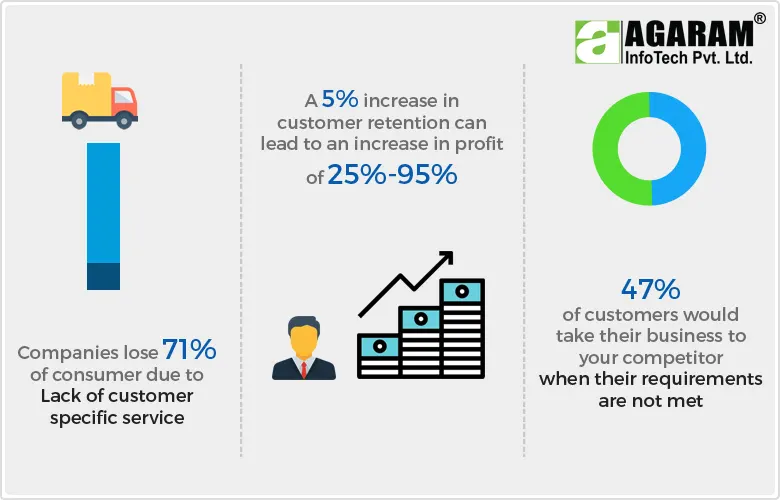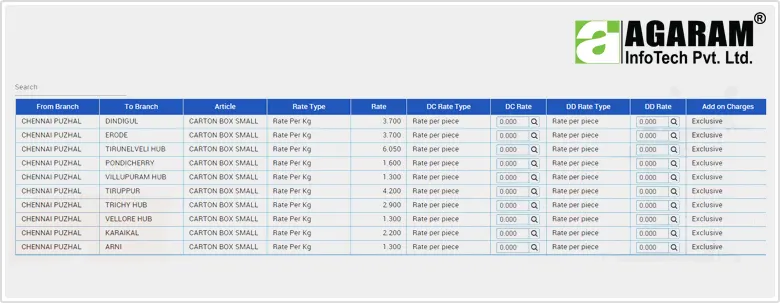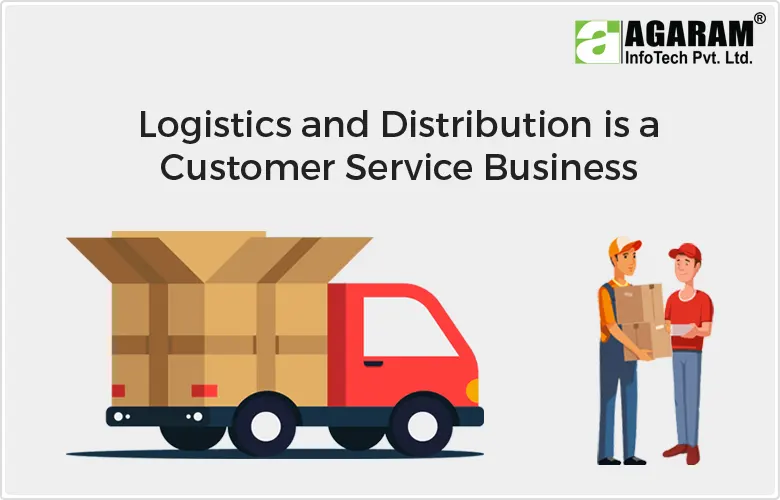
In a competitive environment, customer service is the key factor that differentiates you from your competitor and also ensures customer loyalty. Setting the components of customer service and quantifying the level of service are means of keeping the company’s competitive advantage. Every Logistics provider operates with the ultimate motive of serving customers as well or better than the competition, addresses their specific requirements and at the same time achieve sustained profit and maximum customer retention. With changing market dynamics and technology advancements customer demands in the logistics industry has highly evolved. They require both flexibility and visibility of process:
Flexibility : The logistics provider should offer flexibility in operation and customize to suit their specific requirement.
Visibility and Transparency : Complete disclosure throughout the process of tariff setup, order placements and delivery process in real time.
In this regard defining Customized Logistics Tariff for your customers which is specific as per their requirements assumes great importance. Tariff definition that is customer specific is an option much sought after and demanded by the customers. For regular customers logistics Providers generally enter into a Tariff Contract which specifies the Minimum Freight charges, Minimum Chargeable weight, Minimum Door collection charges, Minimum Door delivery charges, and the tariff rate defined based on weight(e.g. : Quintal or Kg) for each kilometer. These charges and the tariff rates vary customer to customer, predominantly depending on the frequency of service rendered to the customer and the amount of business provided by the customer. However apart from the basic rule of defining the tariff charges based on weight or distance covered customers also wish to accommodate few other parameters for tariff definition. Here we have listed some of the tariff contracts which have been defined keeping in view the demands of the logistics customer.
Customer tariff contract in Logistics is based on the article moved. Freight rate is defined for movement from one location to another based on the article in transit. This method of assigning allow to define a template for each customer something which resembles this

Here for the same From and To location based on the article moved the customer tariff rates are defined.
It is vital that the Logistics Provider values the uniqueness of client’s business and henceforth its requirements. At times he has to entertain customer’s request to consider two dimensions or constraints while defining Tariff. Consider the scenario when different tariff rates has to be applicable for each of the scenario below
| From Location | Distance Covered (KMs) | Slab (Weight in Kgs or per piece) | Transportation charges |
|---|---|---|---|
| Madurai | 350 | 1 - 1000 | |
| Madurai | 350 | 1000 - 2000 | |
| Madurai | 500 | 1 - 1000 |
Here while defining the Customized Logistics Tariff the distance to be covered and the weight slab in which the article belongs to have to be considered. Keeping both these parameters the tariff rates have to be setup. Apart from these tariff contracts, customers also desire Region based, Slab based and many other specific tariff setup.
A recent study conducted by "Logistics Marketing Advisors" posted the following question to 200 buyers of third party logistics (3PL) services: "How could logistics service providers more effectively engage with you when trying to build a relationship and gain new business?"
The top two responses clearly revealed the mindset of the customers:
Know my business. The customers demanded that the logistics provider have a better understanding of their business.
Give me a better price. Customers specified that they prefer to work with familiar providers who would offer them better prices and clearly show the cost differentiator. This was something beyond the freight rate and that which would offer more value add.
Both the above requirements clearly indicate that Customer Tariff Contract in Logistics Industry should be based on their business and custom requirements; ensures customer satisfaction and customer retention.

"Logistics and Distribution is a Customer Service Business", and regardless of smart personnel, sophisticated tools, advanced fleet management technology, and engineered processes customers judge logistics providers based on their customer specific service. It is important to consider the specific requirements of the customer and provide Customized Logistics Tariff accordingly. A happy and content customer will surely bring in his future business to the organization and also refer the provider to his acquaintances with similar requirement. For the logistics provider a happy and content customer is “Growing Business”. This industry works a lot on the basis of faith and reference. Establishing credibility in the market as a customer centric provider definitely translates in to business growth and success. To ensure this the logistics provider should resort to Technological development in his field. A customized Logistics application that enables logistics provider to offer tariff rates depending on their specific requirements will ensure customer satisfaction and maximum retention.